Cockatiels: Popular Pet Birds with Gentle Temperament

Cockatiels are among the most popular pet birds worldwide, known for their gentle temperament and playful personalities. These charming and friendly creatures can easily become beloved members of the family.
If you’re considering adding a cockatiel to your home, it’s essential to understand their characteristics, needs, and how to properly care for them.
This guide will explore the unique traits of cockatiels and provide useful information to help you ensure your bird thrives.
The Cockatiel: An Overview
Cockatiels, scientifically known as Nymphicus hollandicus, are a species of parrot native to Australia. They are smaller than many other parrots but have vibrant, striking features, including their distinctive crests and colorful plumage.
They are most commonly recognized by their yellow faces, orange cheek patches, and gray bodies, though some variations include white, lutino, and pied cockatiels, offering a broader range of colors.
 History and Origin
History and Origin
In the wild, cockatiels are often found in Australian woodlands and grasslands, where they roam in large flocks.
In their native environment, they have adapted to living in semi-arid regions, often relying on sparse water sources and the ability to adapt to varying weather conditions.
Cockatiels were first imported to Europe in the 19th century, and they have been a favorite among pet owners ever since.
Characteristics of Cockatiels
One of the most endearing traits of cockatiels is their gentle temperament. They are known for being social, affectionate, and easy to bond with, making them great pets for families, couples, and even individuals.
Here are some key characteristics of cockatiels that contribute to their charm:
Playful and Affectionate
Cockatiels are highly interactive birds that love to engage with their owners. Whether it’s whistling, singing, or mimicking sounds, these birds are highly entertaining and bring a cheerful atmosphere to any home.
They often develop strong bonds with their owners and can be affectionate companions. Many cockatiels enjoy cuddling, head scratches, and sitting on their owner's shoulder.
 Gentle and Calm
Gentle and Calm
While some parrot species can be more aggressive or high-strung, cockatiels have a gentle and calm nature, making them suitable pets for people of all ages.
This trait also makes them ideal for first-time bird owners or families with young children. However, they do require social interaction and can become lonely or depressed without sufficient attention.
Intelligent and Trainable
Cockatiels are highly intelligent birds that can be trained to do simple tricks or mimic human speech. With consistent training, they can learn to step up onto a finger, play games, or even sing songs.
Their ability to learn makes them a great choice for owners who enjoy teaching their pets new skills.
Cockatiel Care: Keeping Your Bird Happy and Healthy
Like all pets, cockatiels require proper care to live a long and healthy life. While they are relatively low-maintenance compared to other birds, there are certain essentials every cockatiel owner should be aware of to ensure their pet’s well-being.
 A Suitable Cage
A Suitable Cage
Cockatiels need a spacious cage where they can comfortably move around. The cage should be wide enough to allow for flight or at least short hops, as these birds need exercise to stay healthy.
The spacing of the bars should be narrow enough to prevent escapes but wide enough for them to move freely. Be sure to include perches, toys, and play areas inside the cage to keep your cockatiel mentally stimulated.
Nutrition and Diet
A well-balanced diet is essential for maintaining your cockatiel’s health. These birds thrive on a diet of pellets, seeds, fresh fruits, and vegetables. Avoid feeding them only sunflower seeds, as they can be too high in fat.
Greens, such as spinach, kale, and parsley, along with fruits like apples, bananas, and berries, provide necessary vitamins and minerals.
Regular Social Interaction
Since cockatiels are social birds, they require daily interaction and mental stimulation to avoid boredom. Spending time with your cockatiel outside of the cage for playtime or training sessions will help foster a strong bond.
It’s also important to talk to them and provide plenty of enrichment, such as new toys or different types of perches.
 Health Considerations
Health Considerations
As with all pets, cockatiels are prone to certain health issues. Keep an eye on their feathers, beak, and feet for any signs of disease.
If your cockatiel shows any changes in behavior, such as fluffing up, reduced appetite, or unusual droppings, it’s important to consult with an avian vet.
Cockatiels in Your Home: Ideal Pet Birds
If you’re looking for a bird that combines beauty, intelligence, and affection, the cockatiel is an excellent choice. They are gentle, easy to care for, and can bring joy and companionship to any household.
Whether you live in an apartment or a house with plenty of space, a cockatiel can adapt to your lifestyle, provided it receives plenty of attention and mental stimulation.
 Why Cockatiels Make Great Companions
Why Cockatiels Make Great Companions
In conclusion, cockatiels are wonderful companions due to their gentle temperament, playful nature, and affectionate personalities.
Their intelligence and ability to form strong bonds with their owners make them the perfect pet for those who want a bird that is both entertaining and loving.
By providing them with proper care, attention, and a safe, stimulating environment, you can enjoy the company of a happy and healthy cockatiel for many years to come.
Did you find this post useful or inspiring? Save THIS PIN to your PETS Board on Pinterest!
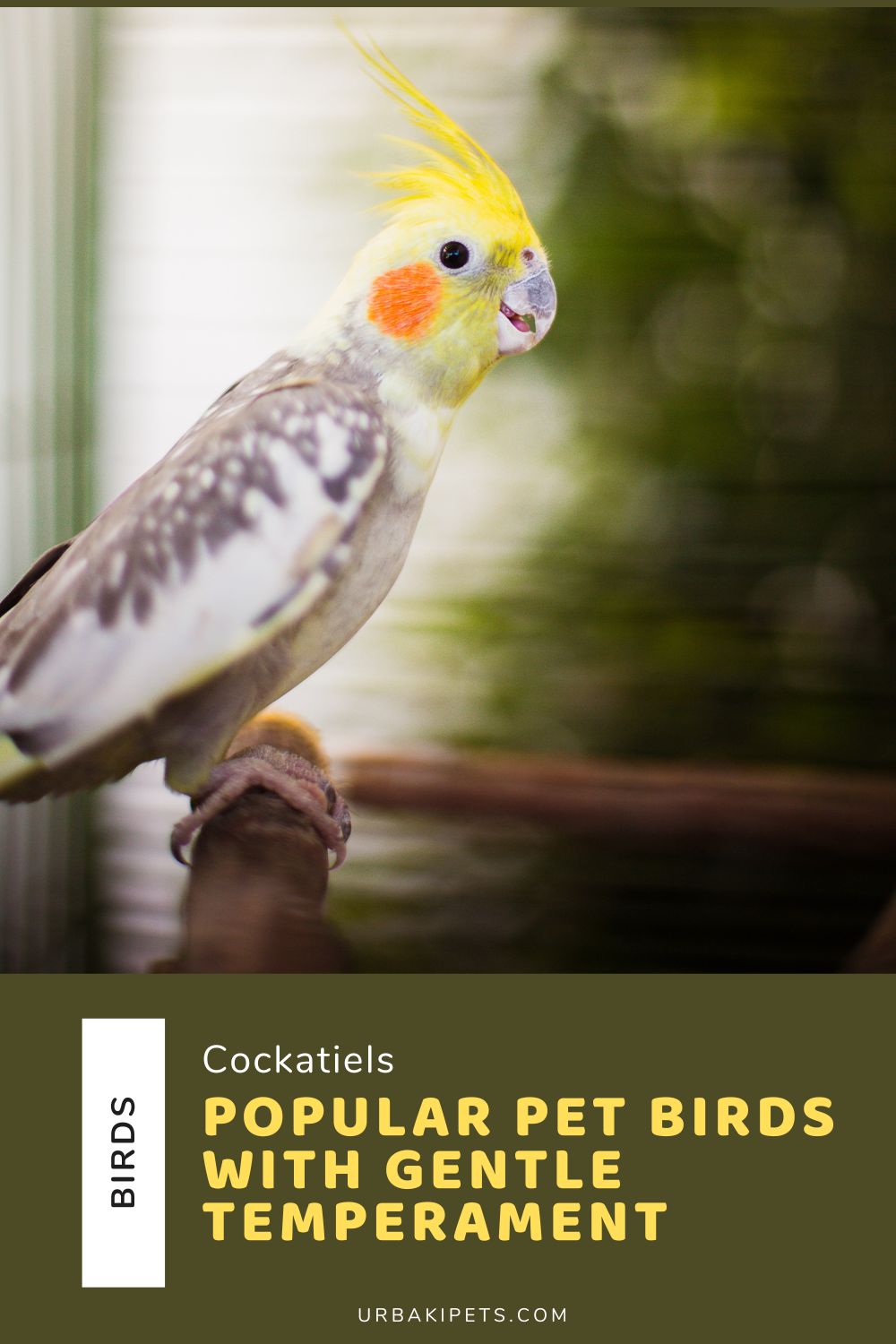

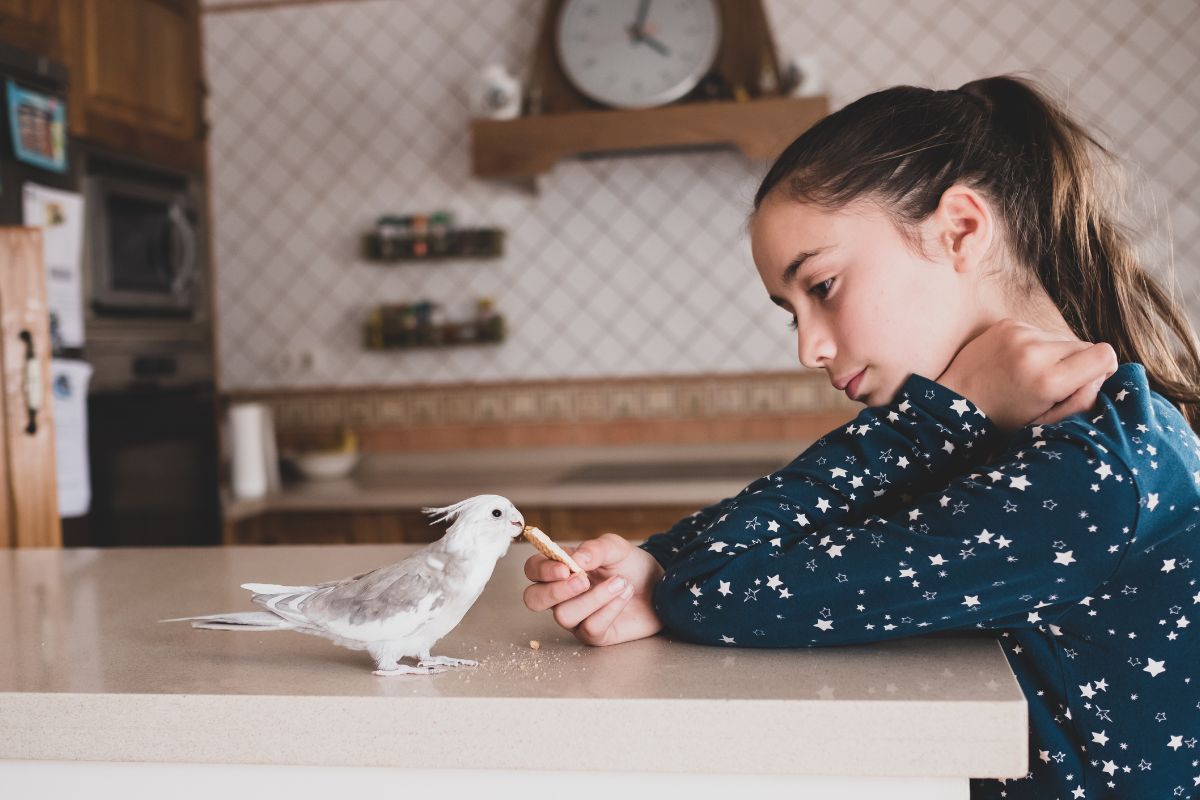 History and Origin
History and Origin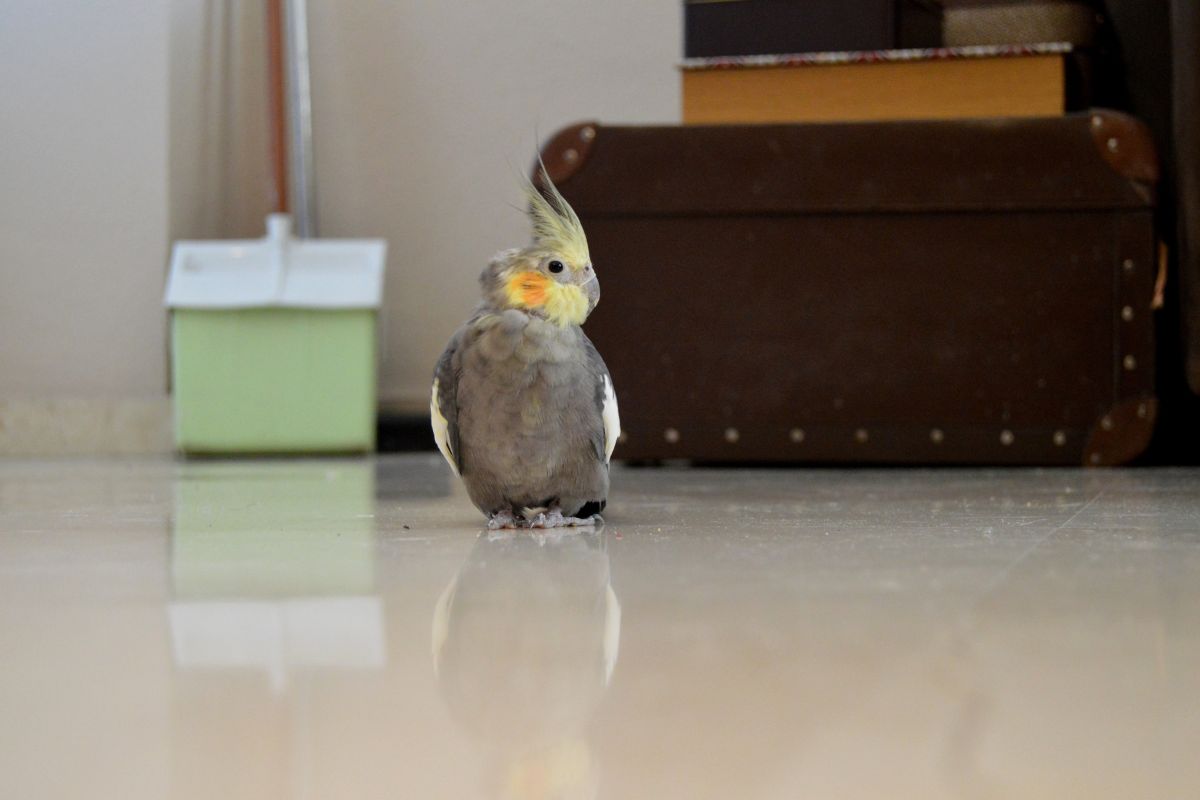 Gentle and Calm
Gentle and Calm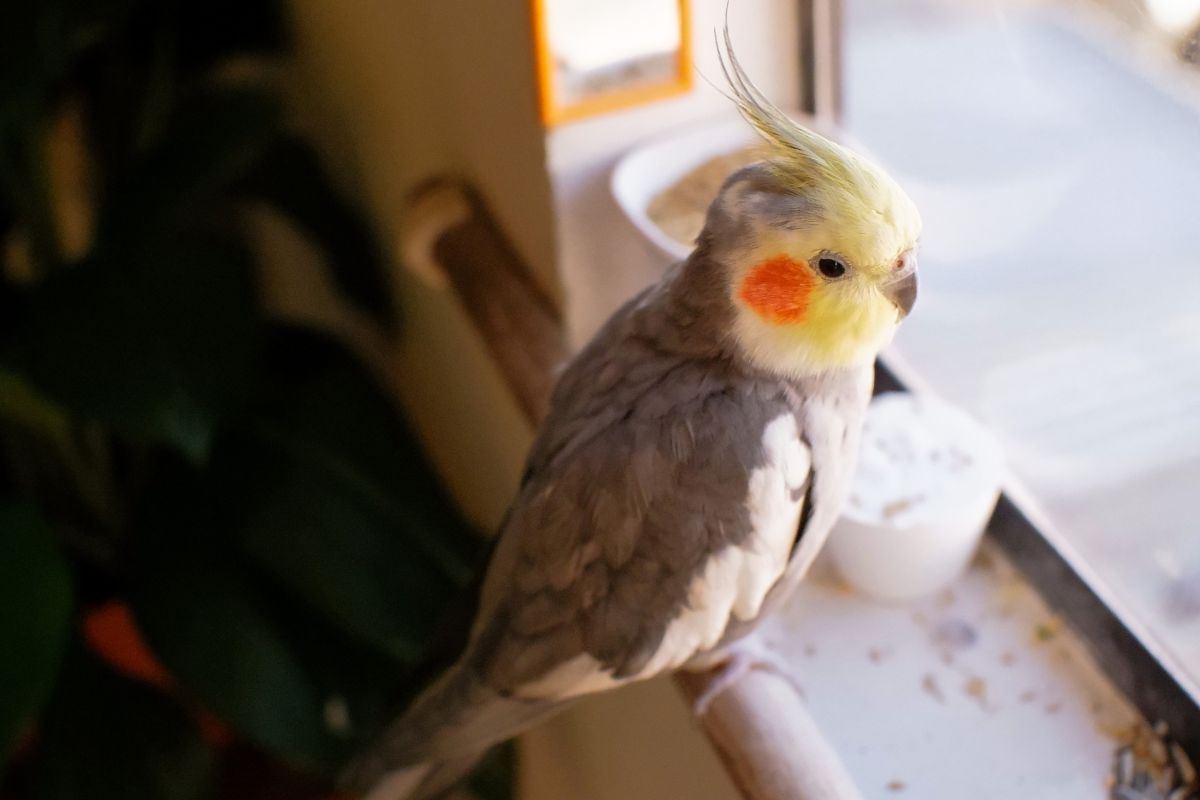 A Suitable Cage
A Suitable Cage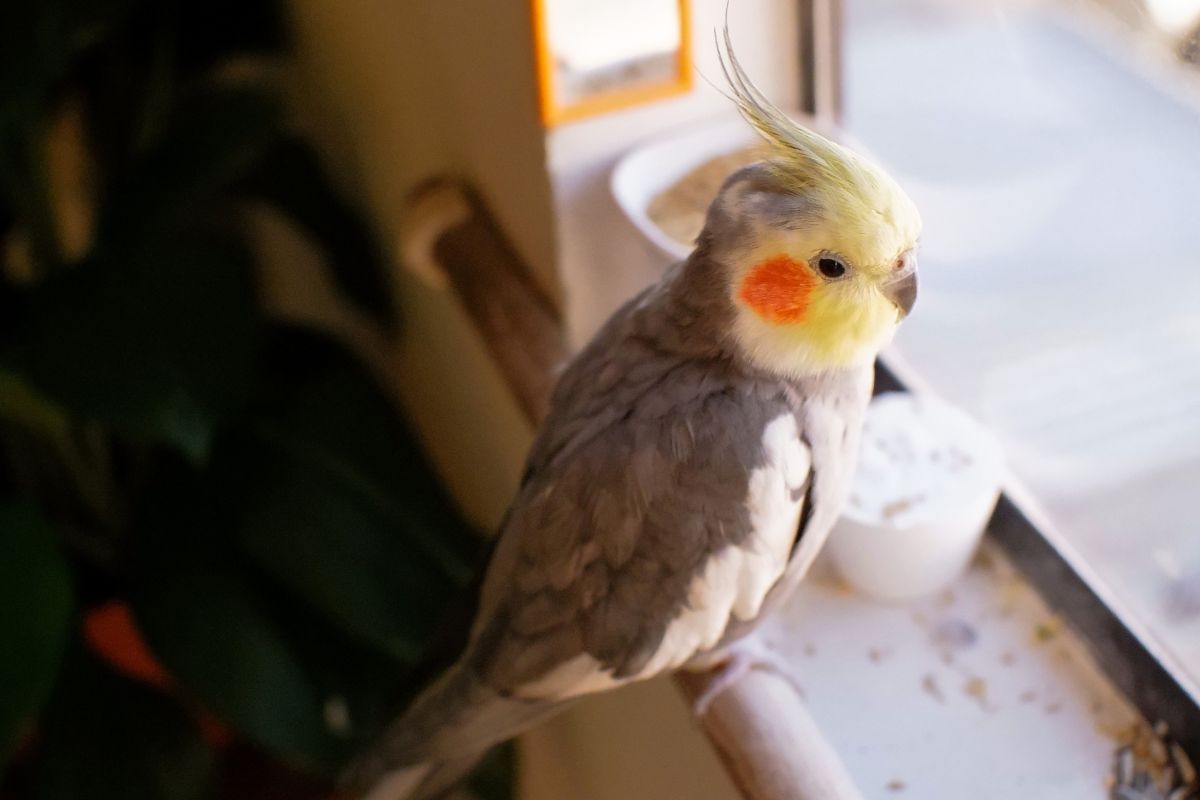 Health Considerations
Health Considerations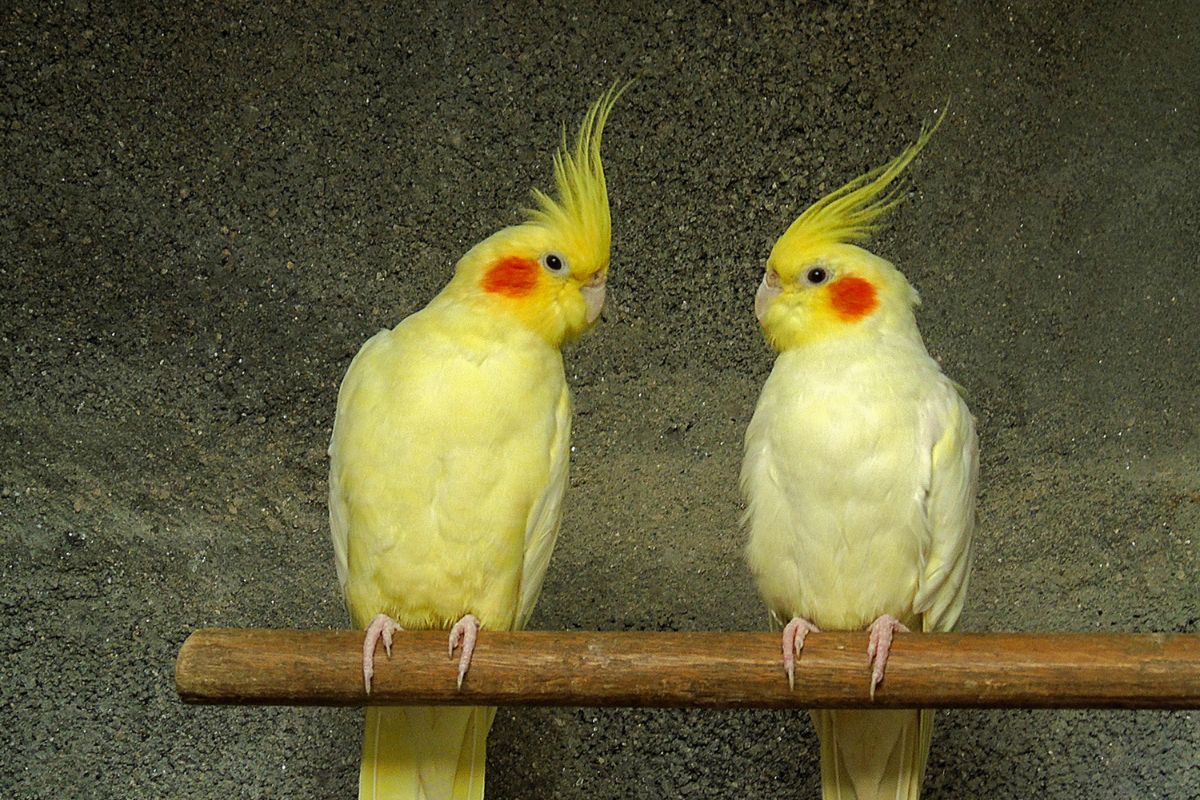 Why Cockatiels Make Great Companions
Why Cockatiels Make Great Companions
You may also like